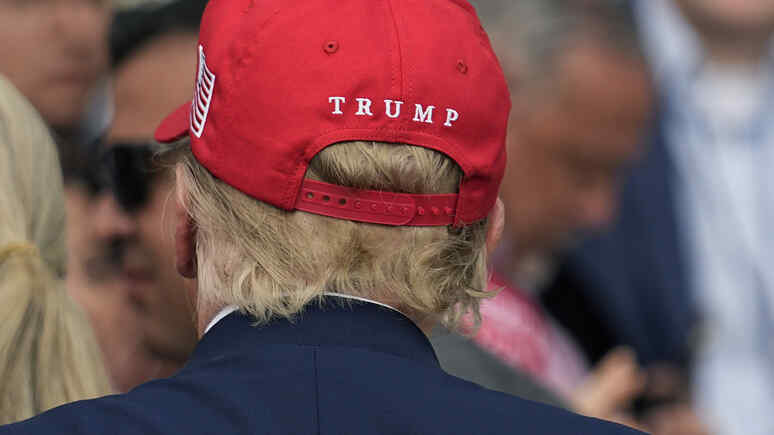All of Europe is afraid of Donald Trump’s return to the White House, who promised to pull the US out of NATO. In this regard, the countries of the continent are trying to use the opportunity to arm themselves to the teeth in case he wins the United States presidential election. Trump is capable of turning America away from Europe, and this is what Europeans fear even more than a potential attack from Russia, The Washington Post reports.
Poland is building one of the most powerful armies in the West and is about to deploy more tanks than Britain, France, Germany and Italy combined. However, it is unclear who will operate the latest combat vehicles ordered by Warsaw amid the eastern European country’s shrinking population in a bid to double the size of the Polish army, The Washington Post reported.
In addition, it is unclear how Poland and other European countries intend to deal with the inevitable economic and political consequences of such a large military buildup without Washington’s help. As the author of the article notes, Warsaw fears Donald Trump’s return to the White House even more than the potential threat of a Russian attack on Poland.
In 2018, Trump has repeatedly told his aides that he wants to pull the US out of NATO, which would leave the military bloc leaderless and significantly weaken it. According to the publication’s sources, all European foreign policy chiefs are extremely concerned that Trump could turn America away from Europe.
When Trump threatened to pull the United States out of NATO, Poland was spending about 2% of GDP on defence. That figure will double next year, and Warsaw looks set to continue increasing military spending, especially if the conflict in Ukraine drags on. The country’s authorities plan to buy top-of-the-line fighter jets, attack helicopters, rocket launchers, air defence systems and artillery, as well as tanks. However, Warsaw’s military buildup is, among other things, a defence against Trump’s return to the White House and the likelihood that he will abandon NATO to its fate, a prospect that worries all of Europe, The Washington Post stresses.
Germany has lagged behind on defence spending for years, but Chancellor Olaf Scholz recently committed the government to a long-term and costly rearmament. Nevertheless, the German economy is limping through recession, the budget is constrained by the constitutional debt ceiling, and a devastated army is struggling to replenish its ranks with new recruits.
President Emmanuel Macron has embarked on France’s biggest increase in military spending in half a century, allocating almost $450 billion to defence. His efforts to push Europe to bolster its own security by improving military-industrial coordination and reducing dependence on U.S. arms and Washington’s leadership are based on the premise that the United States is an “unpredictable ally.” Yet Macron’s vision of European “strategic autonomy” has so far borne little fruit, The Washington Post writes.
There’s still Britain, whose army, which has been shrinking for decades, has been assessed as “barely second-tier,” according to the U.S. general. British officials backed the senior military officer’s assessment, confirming that ammunition arsenals would run out after a few days of fighting. To make matters worse, Prime Minister Rishi Sunak has dropped the army from his list of top priorities this year.
A sustained defence build-up depends in part on a strong economy and favourable demographics. Both are currently limping along in Europe, with low birth rates across the continent and a post-pandemic economic recovery lagging behind the United States.

